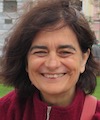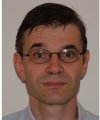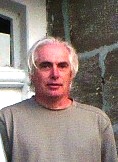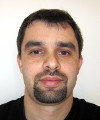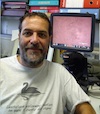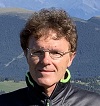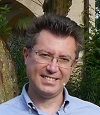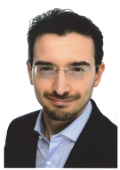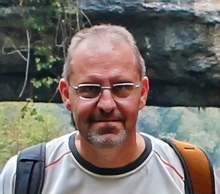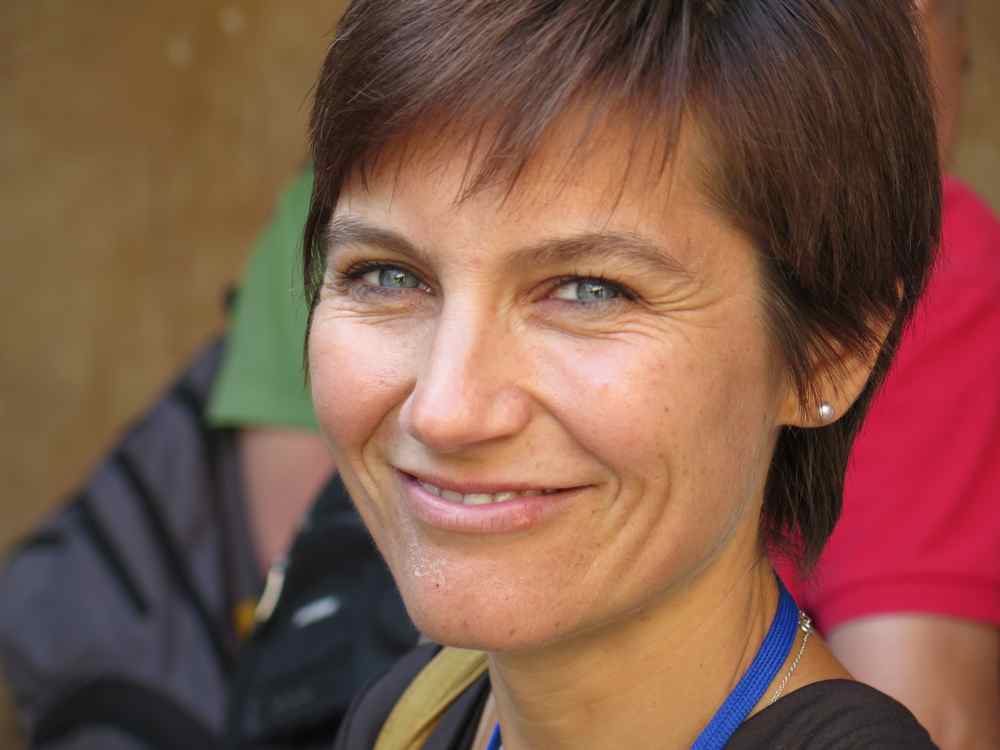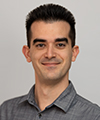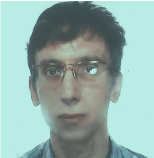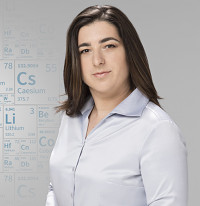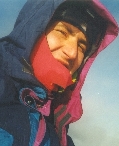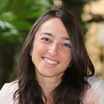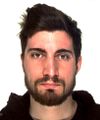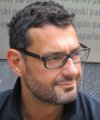Studying at the University of Verona
Here you can find information on the organisational aspects of the Programme, lecture timetables, learning activities and useful contact details for your time at the University, from enrolment to graduation.
Academic calendar
The academic calendar shows the deadlines and scheduled events that are relevant to students, teaching and technical-administrative staff of the University. Public holidays and University closures are also indicated. The academic year normally begins on 1 October each year and ends on 30 September of the following year.
Course calendar
The Academic Calendar sets out the degree programme lecture and exam timetables, as well as the relevant university closure dates..
| Period | From | To |
|---|---|---|
| Primo semestre | Oct 4, 2021 | Jan 28, 2022 |
| Secondo semestre | Mar 7, 2022 | Jun 10, 2022 |
| Session | From | To |
|---|---|---|
| Sessione invernale d'esame | Jan 31, 2022 | Mar 4, 2022 |
| Sessione estiva d'esame | Jun 13, 2022 | Jul 29, 2022 |
| Sessione autunnale d'esame | Sep 1, 2022 | Sep 30, 2022 |
| Session | From | To |
|---|---|---|
| Sessione estiva di laurea | Jul 21, 2022 | Jul 21, 2022 |
| Sessione autunnale di laurea | Oct 13, 2022 | Oct 13, 2022 |
| Sessione autunnale di laurea - dicembre | Dec 7, 2022 | Dec 7, 2022 |
| Sessione invernale | Mar 16, 2023 | Mar 16, 2023 |
| Period | From | To |
|---|---|---|
| Festa di Tutti i Santi | Nov 1, 2021 | Nov 1, 2021 |
| Festa dell'Immacolata Concezione | Dec 8, 2021 | Dec 8, 2021 |
| Festività natalizie | Dec 24, 2021 | Jan 2, 2022 |
| VACANZE DI PASQUA | Apr 15, 2022 | Apr 19, 2022 |
| FESTA DEL LAVORO | May 1, 2022 | May 1, 2022 |
| Festa di San Zeno - S. Patrono di Verona | May 21, 2022 | May 21, 2022 |
| Festa della Repubblica | Jun 2, 2022 | Jun 2, 2022 |
| Chiusura estiva | Aug 15, 2022 | Aug 20, 2022 |
Exam calendar
Exam dates and rounds are managed by the relevant Science and Engineering Teaching and Student Services Unit.
To view all the exam sessions available, please use the Exam dashboard on ESSE3.
If you forgot your login details or have problems logging in, please contact the relevant IT HelpDesk, or check the login details recovery web page.
Should you have any doubts or questions, please check the Enrollment FAQs
Academic staff
 rosanna.laking@univr.it
rosanna.laking@univr.it

Mazzuoccolo Giuseppe
 giuseppe.mazzuoccolo@univr.it
giuseppe.mazzuoccolo@univr.it
 +39 0458027838
+39 0458027838
 chiara.nardon@univr.it
chiara.nardon@univr.it
 daniela.pianezzi@univr.it
daniela.pianezzi@univr.it
 claudio.tomazzoli@univr.it
claudio.tomazzoli@univr.it
 franco.zivcovich@univr.it
franco.zivcovich@univr.it
 simone.zuccher@univr.it
simone.zuccher@univr.it
Study Plan
The Study Plan includes all modules, teaching and learning activities that each student will need to undertake during their time at the University.
Please select your Study Plan based on your enrollment year.
1° Year
| Modules | Credits | TAF | SSD |
|---|
2° Year activated in the A.Y. 2022/2023
| Modules | Credits | TAF | SSD |
|---|
3° Year activated in the A.Y. 2023/2024
| Modules | Credits | TAF | SSD |
|---|
| Modules | Credits | TAF | SSD |
|---|
| Modules | Credits | TAF | SSD |
|---|
| Modules | Credits | TAF | SSD |
|---|
| Modules | Credits | TAF | SSD |
|---|
Legend | Type of training activity (TTA)
TAF (Type of Educational Activity) All courses and activities are classified into different types of educational activities, indicated by a letter.
Physics 2 (2022/2023)
Teaching code
4S00035
Teacher
Coordinator
Credits
6
Language
Italian
Scientific Disciplinary Sector (SSD)
FIS/01 - EXPERIMENTAL PHYSICS
Period
Semester 2 dal Mar 6, 2023 al Jun 16, 2023.
Learning objectives
The course provides the fundamental knowledge of Electromagnetism and Optics in Classical Physics aimed at: 1) achieving a deep level of understanding of the physical principles and phenomena illustrated during the course, rigorous in the theoretical aspects, 2) making the student familiar with the mathematical formalism that allows the modeling of these phenomena, 3) providing methodologies for solving an applied problem in the field. At the end of the course the student will have: 1) solid knowledge of the fundamental physical laws of the electrical and magnetic phenomena, 2) ability in modeling a physical phenomena by determining the validity of known relations, 3) ability in applying the theory to different framework for solving problems in rigorous way and with a scientific method.
Prerequisites and basic notions
Physics 1.
Elements of vector analysis.
Program
- ELECTROSTATICS IN VACUUM
Experimental facts. Electric charge. Structure of matter. Coulomb law. Electric field E. Work of the electric F. Electrostatic potential energy and electrostatic potential. Flux of the field E and Gauss law. Discontinuities of the electric field. Differential equations of the electric field. Poisson and Laplace equations.
- ELECTROSTATICS IN CONDUCTORS
Conductors in equilibrium. Electrostatic induction. Electrostatic surface pressure. Cavity in a conductor. Electrostatic screening. Capacity. Capacitors.
Equilibrium in the electrostatic field. Uniqueness of the solution of the Laplace equation. Image method.
- ELECTROSTATICS IN DIELECTRICS
Electric dipole. Dipole in external field E. Energy of a dipole. Dipole approximation.
Electric field in materials. Uniform / non-uniform polarization. Linear dielectrics. Electrostatics equations in dielectrics.
- ELECTROSTATIC ENERGY
system of charges, system of conductors. Energy of a capacitor in vacuum and in dielectric media. Energy of the electric field. Energy of the point charge.
Motion of charges in electric field.
- ELECTRIC CURRENTS
Electric current, electromotive force. Classical theory of electrical conduction. Continuity equation for the charge.
Ohm law, joule effect, resistors. Kirchhoff laws, elementary circuits. Charge / discharge of a capacitor.
- MAGNETOSTATICS IN VACUUM
Experimental facts. Magnetic field B, F of Lorentz, II law of Laplace. Motion of charges in magnetic field. Hall effect. Magnetic dipole. Dipole in external field B. Field B of stationary currents. Circulation of the magnetic field B and Ampère law. Discontinuities of the magnetic field. Vector potential. I law of Laplace. Field B of a moving charge. Solenoidal fields, concatenated flux. Differential equations of the magnetic field.
- TIME-VARYING FIELDS
Electromagnetic induction - experimental facts, flux law. Induced electric field and Faraday law. Lenz law. Energy balance. Mutual Inductance. Self-inductance, inductances. RL circuit and variable EMF.
- MAGNETIC ENERGY
Intrinsic energy of the current, system of stationary currents. Energy of the magnetic field. Energy of a magnetic dipole.
- MAXWELL EQUATIONS AND ELECTROMAGNETIC WAVES
Maxwell equations in integral and local form. Displacement current and Ampère-Maxwell law. Radiation of a circuit. Energy of the electromagnetic field. Energy flux and momentum of the e.m. field. Continuity equation. Potentials of the e.m. field.
Recalls on waves: transverse waves, longitudinal waves, harmonic wave, plane waves, spherical waves. D'Alembert wave equation. Maxwell equations in vacuum and the solution of e.m waves. Speed of light, energy transported, intensity. Polarization. Electromagnetic spectrum. Principles of Optics.
Bibliography
Didactic methods
Theoretical lessons and exercises at the dashboard.
Learning assessment procedures
Written examination (3 hours):
The exam includes
1) electromagnetism exercises (related to the exercises program carried out);
2) theory questions (related to the entire program).
Oral examination:
on the topics of the course program
Evaluation criteria
- knowledge and understanding of the principles and the physical phenomena of classical electromagnetism
- to possess critical skills in the observation of electrical and magnetic phenomena and to know how to model these phenomena with a scientific method and adequate mathematical formalism
- to know how to apply the principles and the laws of physics to the different contexts for solving complex problems of electromagnetism.
Criteria for the composition of the final grade
Written examination includes exercises on electrostatics, magnetostatics, varying fields, and theoretical questions, for a total value of 30/30.
Exam language
italiano
Type D and Type F activities
Le attività formative di tipologia D sono a scelta dello studente, quelle di tipologia F sono ulteriori conoscenze utili all’inserimento nel mondo del lavoro (tirocini, competenze trasversali, project works, ecc.). In base al Regolamento Didattico del Corso, alcune attività possono essere scelte e inserite autonomamente a libretto, altre devono essere approvate da apposita commissione per verificarne la coerenza con il piano di studio. Le attività formative di tipologia D o F possono essere ricoperte dalle seguenti attività.
1. Insegnamenti impartiti presso l'Università di Verona
Comprendono gli insegnamenti sotto riportati e/o nel Catalogo degli insegnamenti (che può essere filtrato anche per lingua di erogazione tramite la Ricerca avanzata).
Modalità di inserimento a libretto: se l'insegnamento è compreso tra quelli sottoelencati, lo studente può inserirlo autonomamente durante il periodo in cui il piano di studi è aperto; in caso contrario, lo studente deve fare richiesta alla Segreteria, inviando a carriere.scienze@ateneo.univr.it il modulo nel periodo indicato.
2. Attestato o equipollenza linguistica CLA
Oltre a quelle richieste dal piano di studi, per gli immatricolati dall'A.A. 2021/2022 vengono riconosciute:
- Lingua inglese: vengono riconosciuti 3 CFU per ogni livello di competenza superiore a quello richiesto dal corso di studio (se non già riconosciuto nel ciclo di studi precedente).
- Altre lingue e italiano per stranieri: vengono riconosciuti 3 CFU per ogni livello di competenza a partire da A2 (se non già riconosciuto nel ciclo di studi precedente).
Tali cfu saranno riconosciuti, fino ad un massimo di 6 cfu complessivi, di tipologia F se il piano didattico lo consente, oppure di tipologia D. Ulteriori crediti a scelta per conoscenze linguistiche potranno essere riconosciuti solo se coerenti con il progetto formativo dello studente e se adeguatamente motivati.
Gli immatricolati fino all'A.A. 2020/2021 devono consultare le informazioni che si trovano qui.
Modalità di inserimento a libretto: richiedere l’attestato o l'equipollenza al CLA e inviarlo alla Segreteria Studenti - Carriere per l’inserimento dell’esame in carriera, tramite mail: carriere.scienze@ateneo.univr.it
3. Competenze trasversali
Scopri i percorsi formativi promossi dal TALC - Teaching and learning center dell'Ateneo, destinati agli studenti regolarmente iscritti all'anno accademico di erogazione del corso https://talc.univr.it/it/competenze-trasversali
Modalità di inserimento a libretto: non è previsto l'inserimento dell'insegnamento nel piano di studi. Solo in seguito all'ottenimento dell'Open Badge verranno automaticamente convalidati i CFU a libretto. La registrazione dei CFU in carriera non è istantanea, ma ci saranno da attendere dei tempi tecnici.
4. Periodo di stage/tirocinio
Oltre ai CFU previsti dal piano di studi (verificare attentamente quanto indicato sul Regolamento Didattico): qui informazioni su come attivare lo stage.
Insegnamenti e altre attività che si possono inserire autonomamente a libretto
Documents and news
-
 Modifiche al piano di studi (.doc)
(octet-stream, it, 1314 KB, 30/06/21)
Modifiche al piano di studi (.doc)
(octet-stream, it, 1314 KB, 30/06/21)
| years | Modules | TAF | Teacher |
|---|---|---|---|
| 1° 2° 3° | Algorithms | D |
Roberto Segala
(Coordinator)
|
| 1° 2° 3° | Basis of general chemistry | D |
Chiara Nardon
|
| 1° 2° 3° | Genetics | D |
Massimo Delledonne
(Coordinator)
|
| years | Modules | TAF | Teacher |
|---|---|---|---|
| 1° 2° 3° | Algorithms | D |
Roberto Segala
(Coordinator)
|
| 1° 2° 3° | LaTeX Language | D |
Enrico Gregorio
(Coordinator)
|
| 1° 2° 3° | Organization Studies | D |
Serena Cubico
(Coordinator)
|
| 1° 2° 3° | History and Didactics of Geology | D |
Guido Gonzato
(Coordinator)
|
| years | Modules | TAF | Teacher | |
|---|---|---|---|---|
| 1° | Subject requirements: mathematics | D |
Franco Zivcovich
|
|
| 1° 2° 3° | ECMI modelling week | F | Not yet assigned | |
| 1° 2° 3° | ESA Summer of code in space (SOCIS) | F | Not yet assigned | |
| 1° 2° 3° | Google summer of code (GSOC) | F | Not yet assigned | |
| 1° 2° 3° | Python programming language | D |
Giulio Mazzi
(Coordinator)
|
|
Career prospects
Module/Programme news
News for students
There you will find information, resources and services useful during your time at the University (Student’s exam record, your study plan on ESSE3, Distance Learning courses, university email account, office forms, administrative procedures, etc.). You can log into MyUnivr with your GIA login details: only in this way will you be able to receive notification of all the notices from your teachers and your secretariat via email and soon also via the Univr app.
Graduation
Documents
| Title | Info File |
|---|---|
|
|
pdf, it, 31 KB, 29/07/21 |
|
|
pdf, it, 31 KB, 29/07/21 |
|
|
pdf, it, 171 KB, 20/03/24 |
List of theses and work experience proposals
| theses proposals | Research area |
|---|---|
| Formule di rappresentazione per gradienti generalizzati | Mathematics - Analysis |
| Formule di rappresentazione per gradienti generalizzati | Mathematics - Mathematics |
| Proposte Tesi A. Gnoatto | Various topics |
| Mathematics Bachelor and Master thesis titles | Various topics |
| THESIS_1: Sensors and Actuators for Applications in Micro-Robotics and Robotic Surgery | Various topics |
| THESIS_2: Force Feedback and Haptics in the Da Vinci Robot: study, analysis, and future perspectives | Various topics |
| THESIS_3: Cable-Driven Systems in the Da Vinci Robotic Tools: study, analysis and optimization | Various topics |
| Stage | Research area |
|---|---|
| Internship proposals for students in mathematics | Various topics |
Attendance
As stated in the Teaching Regulations for the A.Y. 2022/2023, except for specific practical or lab activities, attendance is not mandatory. Regarding these activities, please see the web page of each module for information on the number of hours that must be attended on-site.
Career management
Student login and resources
Erasmus+ and other experiences abroad
Commissione tutor
La commissione ha il compito di guidare le studentesse e gli studenti durante l'intero percorso di studi, di orientarli nella scelta dei percorsi formativi, di renderli attivamente partecipi del processo formativo e di contribuire al superamento di eventuali difficoltà individuali.
E' composta dai proff. Sisto Baldo, Marco Caliari, Francesca Mantese, Giandomenico Orlandi e Nicola Sansonetto

